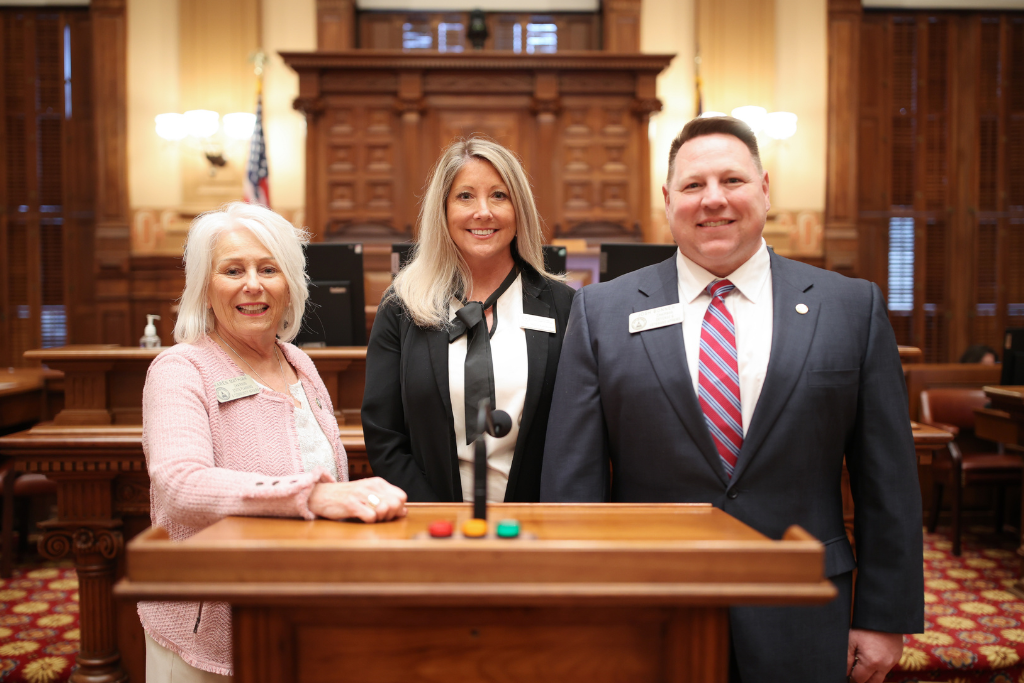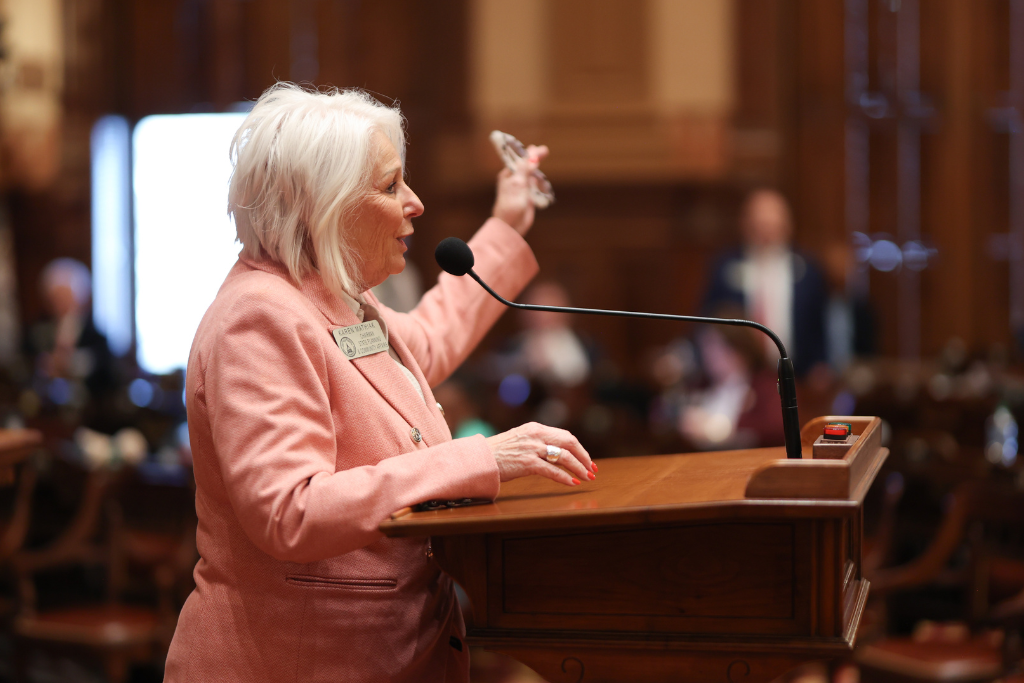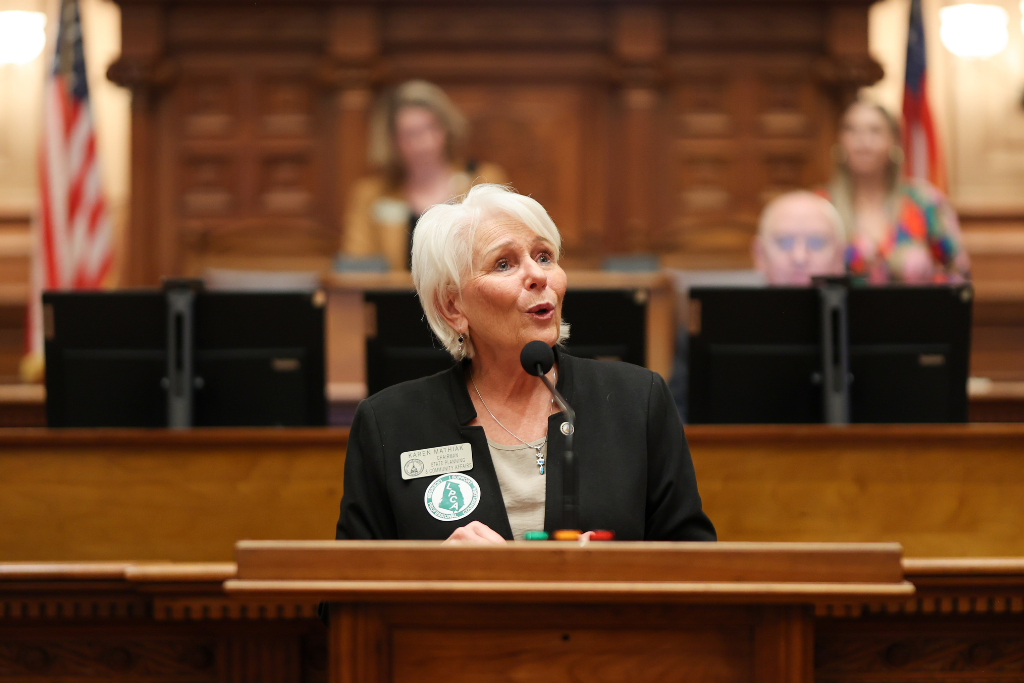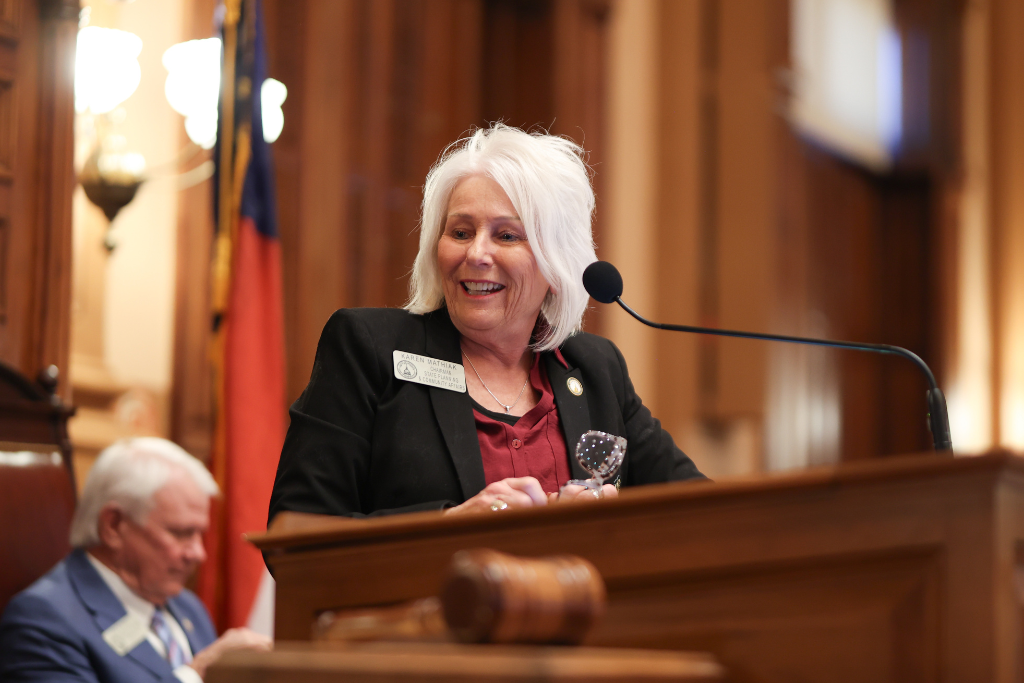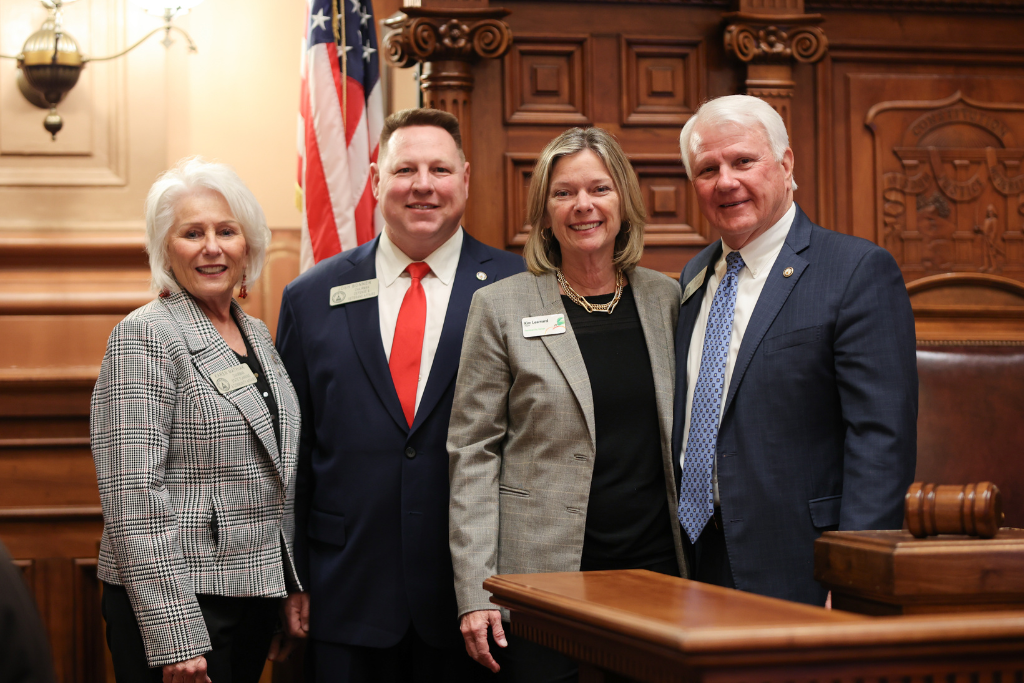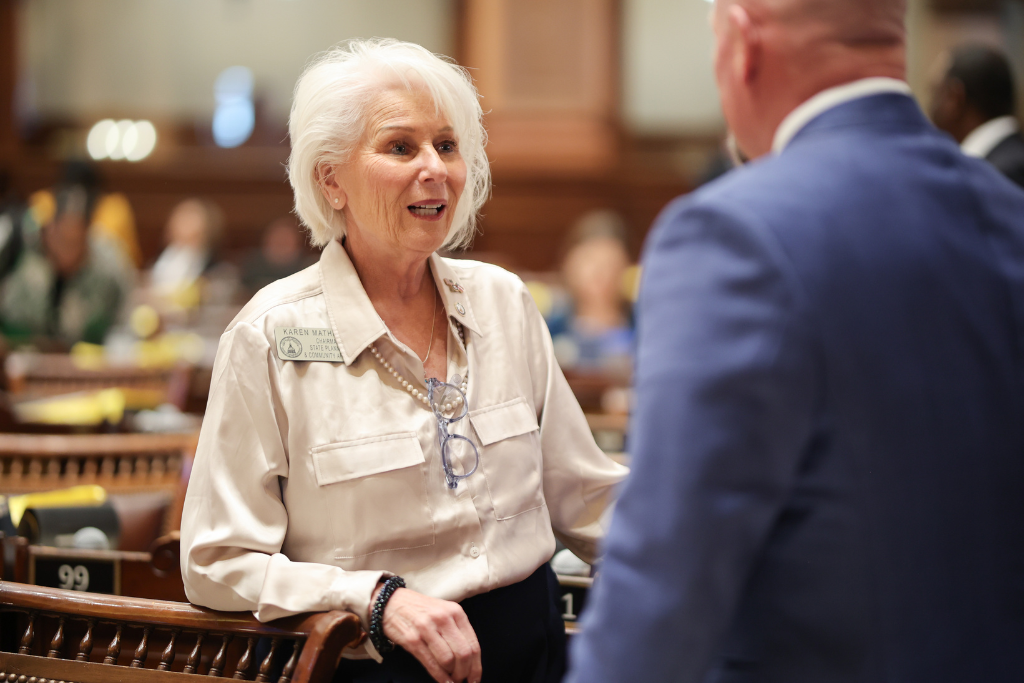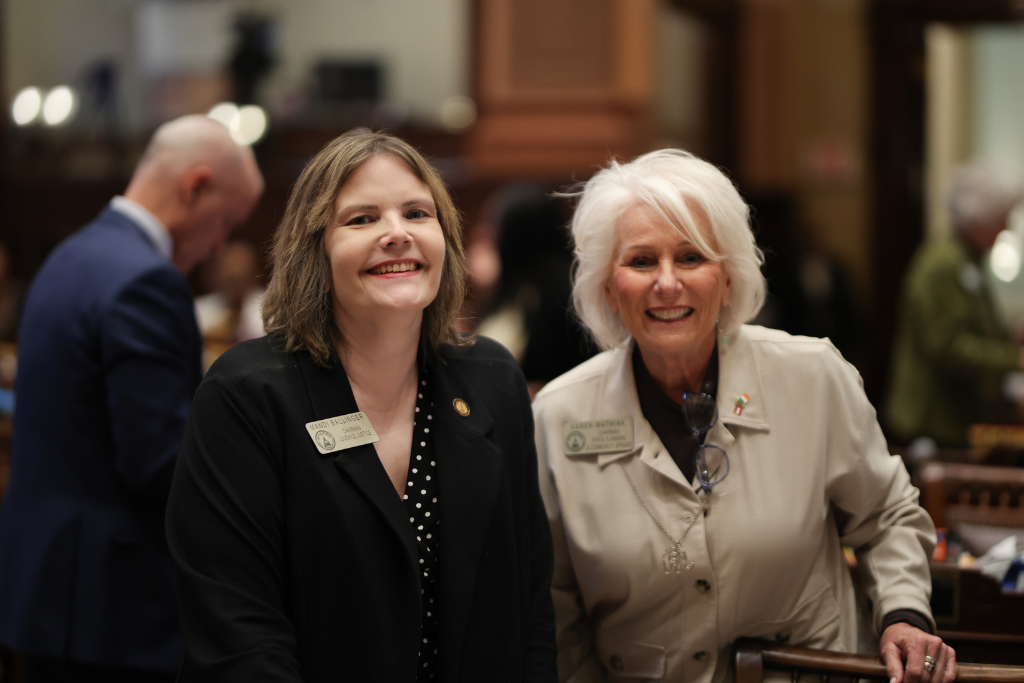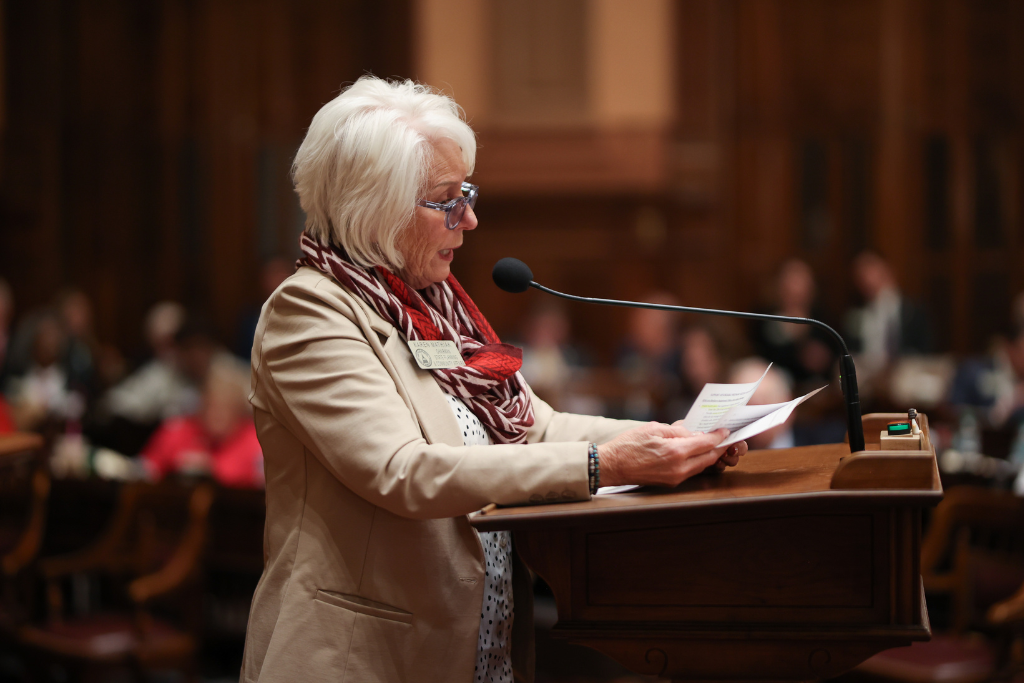Week 2 Legislative Session Recap 2024
January 15-19, 2024
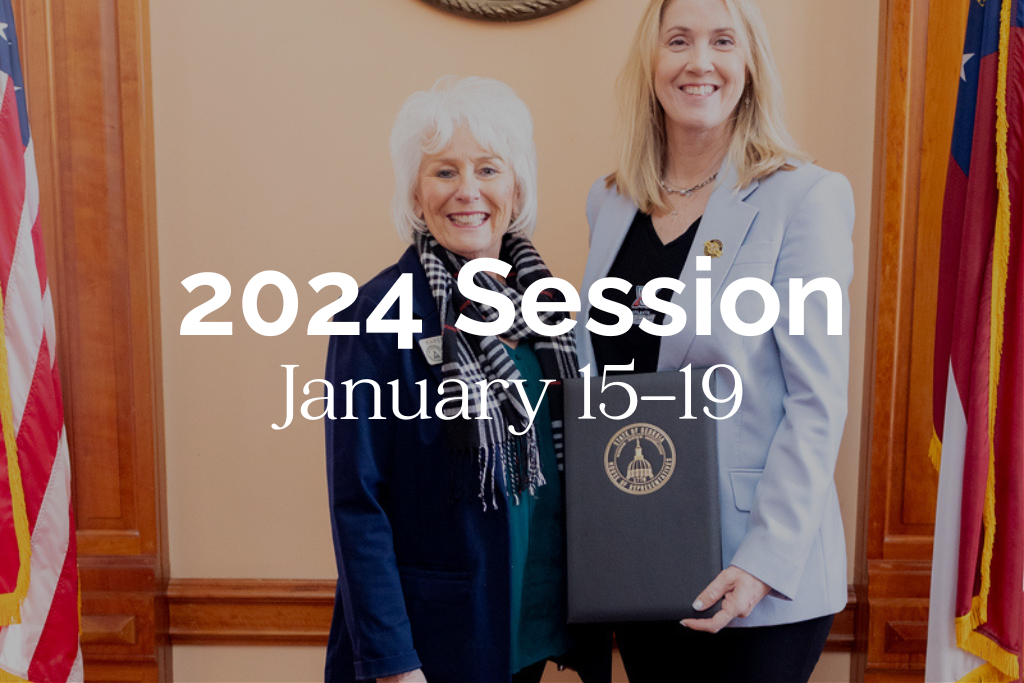
On Tuesday, January 16, my legislative colleagues and I returned to the State Capitol to begin “budget week.” Each year, the Georgia General Assembly is tasked with one constitutional obligation which is to pass a balanced budget, and, as such, the second week of the legislative session is historically devoted to joint House and Senate Appropriations Committee hearings to begin the state budget process. To kick-off budget week, Governor Brian Kemp presented his formal recommendations to the joint committee for the current and upcoming fiscal year budgets, and the governor’s proposal will ultimately be incorporated into legislation that will guide how our state allocates its spending. You can watch a video archive of the governor’s budget proposal presentation here, and I will recap some of his proposal below.
As we start the state budget process, my colleagues and I will begin drafting two budget bills. The first bill, the Amended Fiscal Year 2024 (AFY 2024) budget, will appropriate spending for the remainder of the current fiscal year ending on June 30 and accounts for any differences between last year’s projected revenue estimate and actual revenue obtained. Based on updated revenue estimates, the AFY 2024 budget will include approximately $5.06 billion in additional revenue that our state can utilize over the next six months. This adjustment brings the total appropriation for the Fiscal Year 2024 budget to $37.51 billion. The second bill, the Fiscal Year 2025 (FY 2025) budget, will determine state spending for the upcoming fiscal year beginning on July 1, 2024, and ending on June 30, 2025. This FY 2025 budget is set at a revenue estimate of $36 billion.
As Gov. Kemp discussed his budget proposal with the joint committee, he recapped Georgia’s achievements in recent years and highlighted that more than $5 billion has been directly returned to Georgia taxpayers through tax rebates and suspension of the state’s motor fuel tax in addition to enacting the largest income tax reduction in Georgia history. He also noted that because of sound financial investments, Georgia has remained the number one state in which to do business for 10 consecutive years and remained one of only a few states to have a AAA bond rating. Gov. Kemp highlighted that his AFY 2024 and FY 2025 budget proposal will help further our state’s historic economic development for years to come.
The governor touched on the state’s current economic status, noting that Georgia is situated to support a full range of new and expanding industries, including agriculture, manufacturing and logistics. As our state continues to grow, maintaining a safe, efficient and reliable transportation infrastructure network is crucial, as well as the need to support our growing workforce. As such, the governor proposes a $1.5 billion investment in the AFY 2024 budget for the Georgia Department of Transportation to maintain our roadways, accelerate construction on “shovel-ready” projects and expedite existing projects. These funds would be allocated for local maintenance and improvement grants and for infrastructure projects to promote economic development, while also enhancing efficiency and safety for freight and logistics. Additionally, the governor’s AFY 2024 budget proposal includes $250 million for the Georgia Environmental Financing Authority’s Georgia Fund to support critical water and wastewater infrastructure development through low-interest loans to local communities across the state. His proposal also appropriates $250 million in additional funds for economic development grants provided through the Regional Economic Business Assistance (REBA) grant program and OneGeorgia Authority. This funding would support economic development projects, promote investment in Georgia businesses, expand grant opportunities for rural site development, as well as provide further grant opportunities to address workforce housing in our rural communities.
Gov. Kemp continues to prioritize K-12 teachers and the state’s public workforce by maintaining quality retirement and health care benefits for these workers, and we can see this reflected in his budget proposal. His proposal includes a historic $1 billion investment in the state’s retirement, risk and health portfolios. This includes a $500 million investment in the Employees’ Retirement System to provide greater flexibility in establishing cost-of-living adjustments for state retirees. The FY 2025 budget proposal also allocates $244 million to K-12 schools for teacher’s health insurance without requiring reductions in coverage or further increases in their out-of-pocket costs. In an effort to recruit and retain state employees and K-12 teachers, Gov. Kemp also proposes $306 million in the AFY 2024 budget to provide a $1,000 pay supplement, as well as $630 million in FY 2025 to provide a four percent cost-of-living adjustment to state employees; K-12 teachers and other certified employees would see a $2,500 salary increase under the governor’s plan.
Also, on the topic of education, the governor noted in his presentation that the state has not significantly updated the formula for public school transportation in almost 20 years. As a result, school systems have absorbed the annual costs associated with providing students with transportation to and from school each day. To address this issue, the governor’s FY 2025 budget proposal appropriates nearly $205 million to update the public transportation formula to provide significantly more state support for school transportation needs. With our students in mind, Gov. Kemp proposes $11 million for K-12 literacy initiatives, including regional literacy coaches and screeners for K-3 students to ensure that our young learners are able to read on grade level. Lastly, the governor intends to continue to address school safety needs to make certain that our students can learn in a safe environment with $104 million in FY 2025 to establish a new, annual school security grant program. This FY 2025 budget proposal would provide local schools with a combined total of more than $1.4 billion in additional funding to meet growth needs, bolster teacher pay, maintain quality health and retirement benefits and improve safety.
A few other noteworthy items in Gov. Kemp’s AFY 2024 and FY 2025 budget proposal include: $1 million to expand access to mental health services for Georgia’s military service members, veterans and their families, as well as a total increase of $205 million for the Department of Behavioral Health and Developmental Disabilities and other entities that address mental health in our state; $9 million for a new behavioral health crisis center; $4 million for the Safe Harbor for Sexually Exploited Children Fund Commission for rehabilitation of victims of sex trafficking; $1 million to expand the maternal health pilot program in rural communities; $42 billion to provide a $3,000 salary increase for select POST certified law enforcement officers; $3 million for equipment and vehicles to implement the Georgia Electric Vehicle Charging Program; and $10 million to begin reducing the pre-K classroom size from 22 to 20 students.
In addition to hearing from Gov. Kemp during budget week, we also had the opportunity to hear from state agency leaders and department heads, each outlining and advocating for their budgetary needs for the remainder of the fiscal year and the upcoming fiscal year. We also heard from Georgia’s fiscal economist who provided a comprehensive overview of Georgia’s economic forecast for this year. The important presentations will assist us as we begin the next phase of the state budget process and work to ensure that we create budgets that meet the diverse needs of our state and its citizens.
Now that the joint budget hearings have concluded, the House Appropriations subcommittees will begin to meet to review specific portions of the budget and delve deeper into the state agencies’ budget needs. Since the Georgia Constitution requires budget bills to originate in the House, each House Appropriations subcommittee will pass their respective portions of the AFY 2024 and FY 2025 state budgets, which will collectively result in two complete budget bills to be approved by the full House Appropriations Committee. After being approved by the full House Appropriations Committee, each budget bill will be scheduled for a vote on the House floor by the House Rules Committee. After each budget bill is voted on and passed out of the House, these bills will be transmitted to our counterparts in the Senate and will undergo the same process. There will likely be changes to the governor’s original proposal as the House and Senate continue to work through the budget process, and I will keep you updated as these bills are voted on and finalized.
My colleagues and I will reconvene for legislative day six of the session on Monday, January 22. We expect to have another busy week ahead as the pace of the session continues to pick up and as House committees begin to meet more frequently to consider legislation. As we move forward, I encourage you to visit me at my Capitol office, or contact me if you have any questions or concerns regarding the state budget bills, the legislative process or any other measures being considered under the Gold Dome. I welcome any opportunity to hear feedback from my constituents. My office phone number is 404-656-0213, and my email address is karen.mathiak@house.ga.gov. Please reach out to me any time.
As always, thank you for allowing me to serve as your representative!

